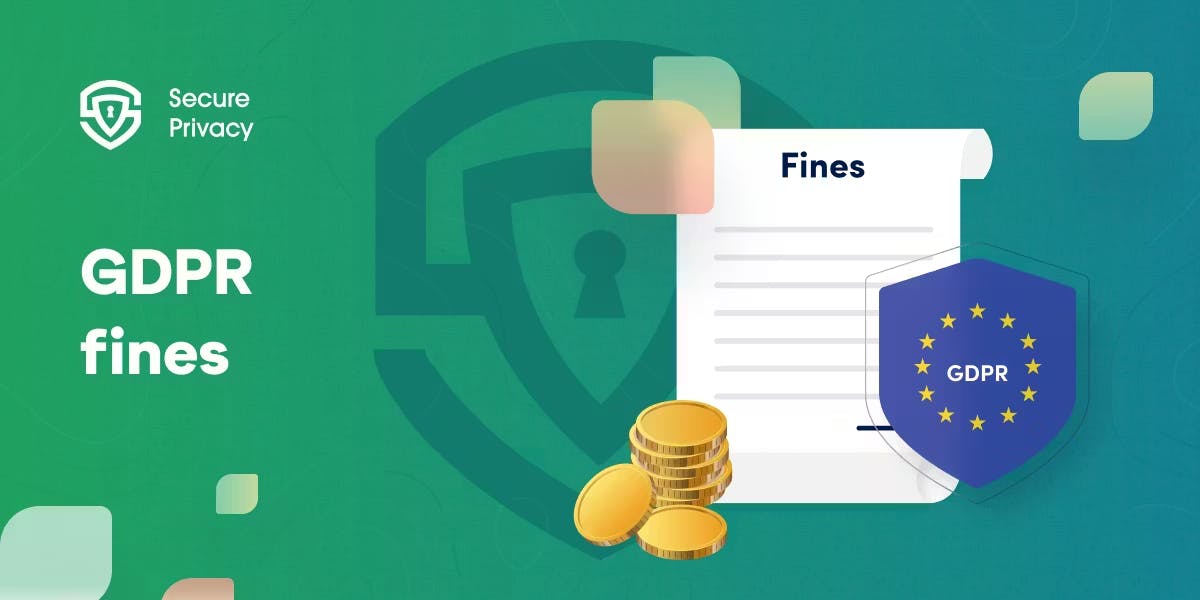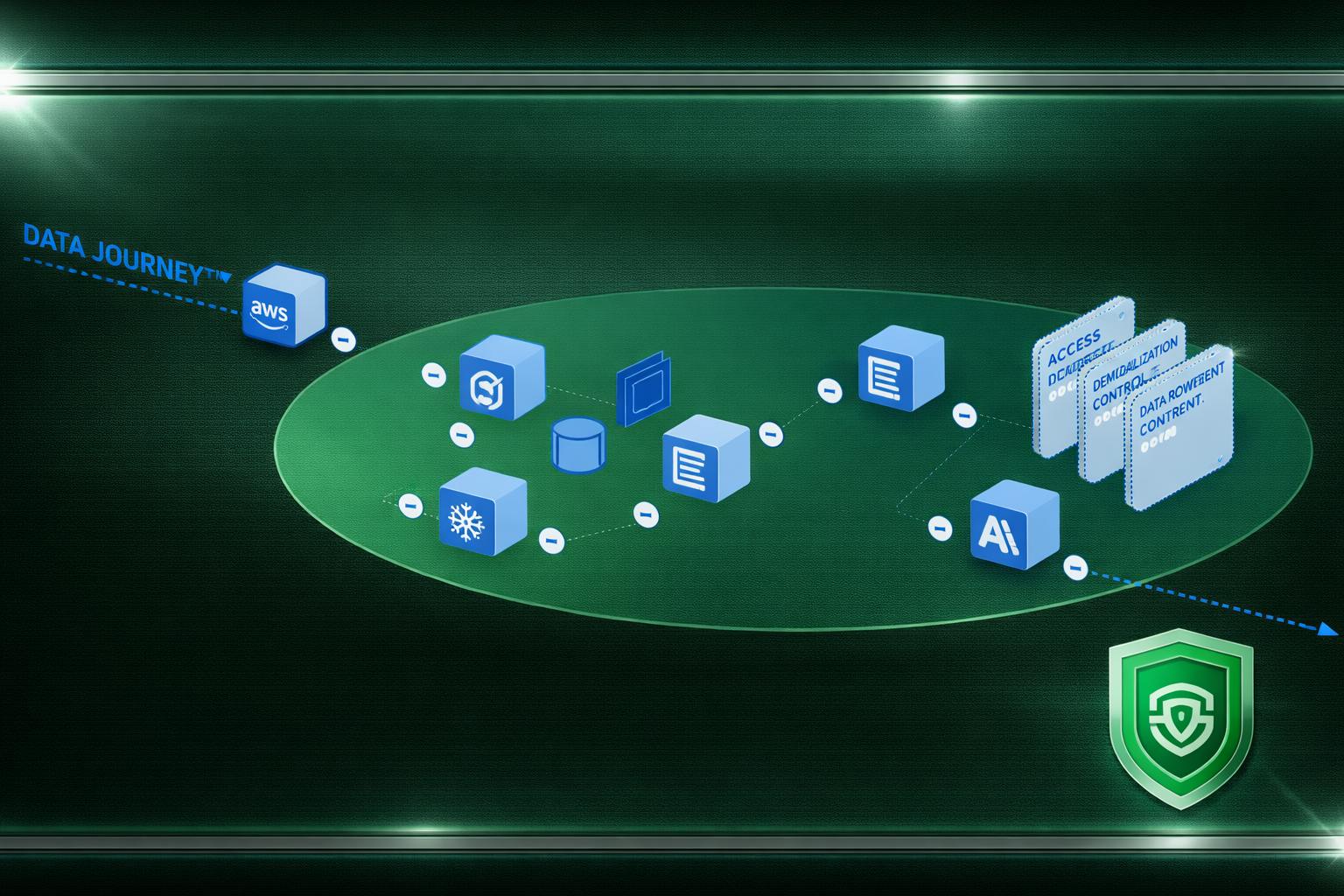Climate Data Privacy Risks and Litigation: Critical Developments for Organizations
Recent legal battles over climate data have triggered unprecedented questions about transparency, privacy protections, and stakeholder access rights. If your organization collects, uses, or depends on climate-related information, these emerging legal trends demand your immediate attention.
The delicate balance between data access, privacy protection, and organizational accountability has become a critical business concern as climate litigation expands globally. Understanding these developments isn't just important for compliance—it could be essential for your operational continuity and risk management strategy.
Government Climate Data Removal: A Watershed Legal Battle
In early 2025, a groundbreaking legal case emerged when several environmental organizations and farmers filed suit against the U.S. Department of Agriculture for removing climate-related information from its websites. This case raises fundamental questions about government transparency and data access rights that affect every organization relying on public climate resources.
The Unprecedented Data Purge
The controversy began when the USDA's director of digital communications instructed staff to remove agency web pages related to climate change and flag other climate-related content for review. Within days, valuable resources disappeared from public access, including:
- Essential data sets used for agricultural planning
- Interactive tools for climate adaptation
- Information about critical funding opportunities
- Technical guidance for climate-smart agriculture practices
The plaintiffs, including the Northeast Organic Farming Association of New York and the Natural Resources Defense Council, argue this purge violates federal laws, including the Freedom of Information Act, and constitutes "arbitrary, capricious, an abuse of discretion" government action.
Real-World Impacts Beyond Information Access
This case isn't merely about website content—it demonstrates how data access directly affects operational decisions and financial planning. For agricultural businesses, the deleted resources provided essential information about:
- Federal loan programs aligned with climate-smart practices
- Technical assistance for implementing adaptation strategies
- Data needed to time planting and harvesting decisions
- Resources for responding to increasingly volatile weather patterns
As Wes Gillingham, board president of NOFA-NY who has farmed for three decades in New York state, noted: "All of a sudden, it's like anything marked with climate is starting to disappear"—right when farmers were preparing for growing seasons while facing increasing climate challenges.
Privacy Concerns in Climate Monitoring Technology
While access to climate data is crucial, organizations collecting such data face growing privacy scrutiny. A landmark case highlighting this tension involved smart meters used by municipal utilities, which capture detailed energy usage data that can reveal household behaviors and patterns.
In 2025, the U.S. Court of Appeals for the Seventh Circuit ruled on a lawsuit claiming smart meters constituted an unconstitutional search by government entities. The court's decision favored the utility but included important qualifications about data collection frequency and law enforcement access that all data-collecting entities should note.
Finding Balance Between Operational Needs and Privacy Protection
This case offers several key lessons for organizations collecting climate-related data:
- Clear ownership of monitoring assets and transparency about data usage purposes provides legal protection
- Demonstrating direct consumer benefits from data collection strengthens your position
- Maintaining robust security measures for collected data is essential for both legal and reputational reasons
As climate monitoring technologies grow more sophisticated—from smart buildings to agricultural sensors—similar privacy questions will inevitably arise. Your data collection practices today could face similar legal challenges tomorrow.
The Global Rise of Climate Litigation
Climate litigation represents a rapidly expanding global phenomenon with significant implications for data governance, transparency, and privacy. According to the Network for Greening the Financial System, these cases generally fall into three main categories:
Actions Against Public Entities
Following the landmark Urgenda case in the Netherlands, litigation seeking to make governmental climate action more ambitious continues to proliferate. These cases often allege:
- Insufficient emissions reduction efforts
- Violations of international commitments
- Administrative law breaches
- Infringements of constitutional or human rights
Recent cases have scrutinized climate action plans for lacking specificity, contested classification of activities as environmentally sustainable, and challenged federal states by asserting climate responsibilities exist at multiple governance levels.
Challenges to Governmental Approvals of Projects
These cases rely on international climate commitments, EU law, and fundamental rights to contest governmental decisions that authorize potentially harmful activities. Such litigation poses immediate risks to organizations with interests in these projects by:
- Causing project delays and timeline uncertainty
- Significantly increasing costs due to legal proceedings
- Potentially blocking projects entirely
For financial institutions especially, these cases create substantial investment risks and potential for stranded assets.
Corporate Climate Litigation
Beyond actions against governments, litigation directly targeting corporate entities is increasing. These cases may be grounded in:
- Human rights responsibilities
- Tort law (alleging public nuisance, negligence, or breach of duty)
- Corporate due diligence legislation
Recent developments in corporate due diligence laws across multiple jurisdictions have created new obligations for organizations to identify risks and prevent impacts on human rights and the environment. These cases often challenge whether corporate activities align with greenhouse gas reduction targets or seek damages for past emissions.
Privacy Implications of Data Preservation Efforts
In response to concerns about climate data deletion, scientists and researchers have engaged in extensive data preservation initiatives. These efforts reflect anxieties about potential loss of valuable long-term climate records essential for research, policy development, and adaptation planning.
While these preservation actions serve important scientific purposes, they raise critical questions about data ownership, privacy, and appropriate usage that organizations should consider:
- Who maintains ownership rights when data is preserved outside its original context?
- What privacy protections apply to preserved datasets that contain potentially sensitive information?
- How should access to preserved data be governed and managed?
These questions aren't merely theoretical—they have practical implications for any organization whose data might be included in such preservation efforts or who relies on preserved information for business planning.
Stakeholder-Specific Implications You Need to Consider
The intersection of climate data, privacy, and litigation affects different organizations in distinct ways:
For Agricultural Businesses
Beyond weather forecasting, government climate data plays a critical role in financial planning and risk management. Many federal programs designed to support sustainable agriculture—including grants for soil conservation, crop insurance subsidies, and disaster relief—rely on data-driven assessments that may be compromised by data access challenges.
If you operate in the agricultural sector, developing alternative data sources and establishing data governance protocols should be immediate priorities.
For Financial Institutions
Climate-related litigation poses direct risks to investments, particularly in projects subject to legal challenges. Cases contesting governmental approvals for infrastructure or development can result in:
- Project delays affecting return timelines
- Substantially increased costs eroding profitability
- Complete project cancellation leading to stranded assets
Your due diligence procedures should incorporate assessment of litigation risks related to climate data and disclosures.
For Researchers and Technology Developers
If your organization conducts climate research or develops climate-related technologies, consider:
- How data collection methods might raise privacy concerns
- Whether your data storage practices meet emerging legal standards
- The potential implications of research being used in litigation contexts
- How to maintain data integrity and continuity despite policy shifts
Essential Actions for Forward-Looking Organizations
As the legal landscape continues evolving, several key steps can help position your organization advantageously:
- Audit your climate data dependencies: Identify where your operations rely on public datasets that could be vulnerable to access changes
- Review your data collection practices: Ensure any climate-related information you gather includes appropriate privacy protections and transparent consent mechanisms
- Develop data redundancy strategies: Create backup approaches for essential climate information to maintain business continuity despite potential access disruptions
- Assess litigation exposure: Evaluate how climate litigation trends might affect your operations, investments, or stakeholder relationships
- Establish clear data governance policies: Create comprehensive frameworks addressing data ownership, access, retention, and privacy protection
Navigating the Future of Climate Data
The intersection of climate data, privacy, and litigation presents significant challenges for organizations across sectors. As legal battles over data access and privacy protections continue to unfold, several principles will be crucial for navigating this evolving landscape:
- Data redundancy and resilience will become essential business practices as public climate information faces access uncertainties
- Privacy-conscious data collection must balance operational needs with appropriate protection of personal information
- Proactive litigation risk assessment will need to become standard practice for climate-related activities
- Cross-sector collaboration between researchers, businesses, and policymakers offers the most promising path for developing balanced frameworks that protect privacy while enabling necessary climate adaptation
As climate impacts intensify, the legal treatment of climate data will continue to be a critical area of development. Organizations that develop thoughtful approaches to data governance, maintain awareness of litigation trends, and prioritize both transparency and privacy will be best positioned to navigate these challenges while contributing to broader climate resilience efforts.
Get Started For Free with the
#1 Cookie Consent Platform.
No credit card required

GDPR Fines and Penalties Explained: Calculation, Enforcement Trends, and Risk Mitigation
Your legal team forwards you a letter from a supervisory authority. A data subject complaint has triggered a formal investigation. Your company processed personal data without a valid lawful basis six months ago — a decision made by a product manager who didn't loop in privacy counsel. Now you're looking at a potential Tier 2 fine, which means up to €20 million or 4 percent of your annual global turnover, whichever is greater. You have thirty days to respond.

Privacy Governance for Financial Services: An Operational Framework for Banks and Fintech
Your compliance team has documented your GDPR obligations. But who monitors whether those obligations are being met on Tuesday afternoon when a new vendor API goes live?
- Privacy Governance
- Fintech

Consent Management for AI Training Data: How to Control LLM Crawlers and Enforce Opt-Out at Scale
Your organisation published a detailed research report six months ago. Last week, a competitor’s AI-powered tool started surfacing insights that mirror your proprietary methodology almost word for word. You did not license your content. You did not consent to its use. And you have no audit trail proving you ever tried to stop it.
- AI Governance
- Data Protection

